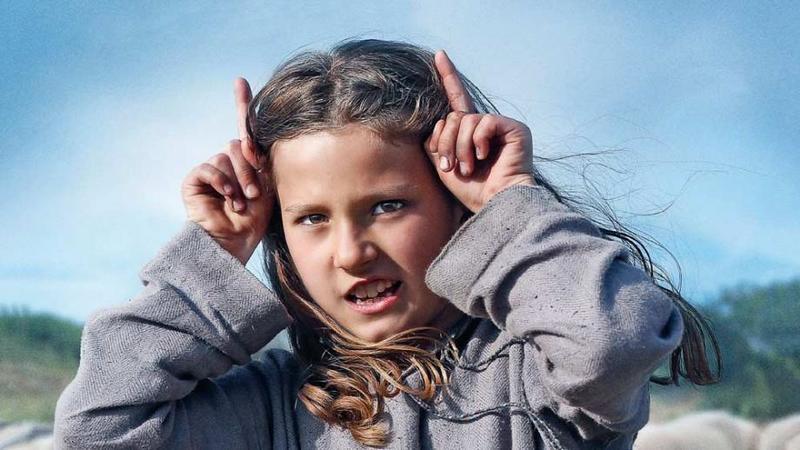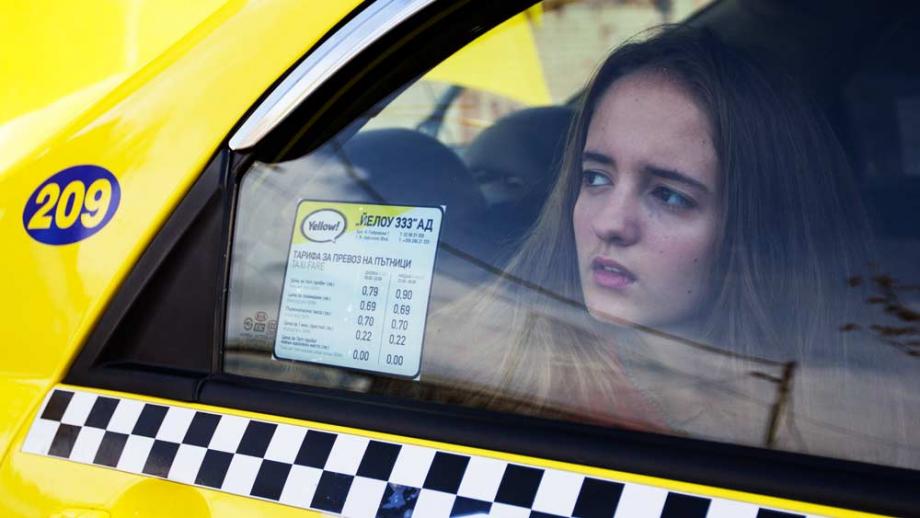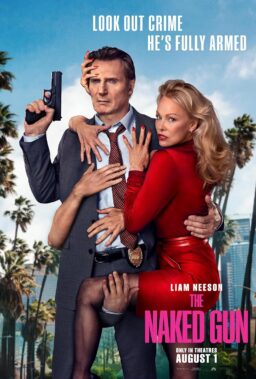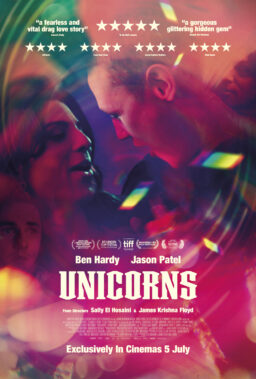Back in 1998, as a way to highlight the new films that were emerging from the member nations of the European Union—ranging from the latest works from some of the world’s most acclaimed filmmakers to the debut efforts of talented newcomers—the Gene Siskel Film Center at the Art Institute of Chicago introduced the European Union Film Festival, the largest North American showcase dedicated to movies of EU origin. Now in its 21st year, the festival, which kicks off on March 9 and runs through April 5, will be presenting the local premieres (and, in many cases, perhaps their only theatrical play) of 61 films from all 28 EU nations and covering virtually every cinematic style and genre imaginable.
One of the traditions of the festival has been that the Opening Night slot is given to a film from the nation currently holding down the presidency of the real-life EU, which is Bulgaria this year. Hosted by Dr. Ivan Anchev, Chicago’s Consul General of the Republic of Bulgaria, this year’s Opening Night film is “Directions,” the latest work from Stephan Komandarev, who made the first Bulgarian film ever short-listed for the Foreign-Language Film Oscar with 2010’s “The World is Big and Salvation Lurks Around the Corner.” This film is a episodic drama laced with moments of dark comedy involving the activities of a group of five taxi drivers and their fares over the course of a long night during which the news is dominated by the story of a rich banker who has been murdered by the cabbie he was extorting and who himself now lies in a coma. The Closing Night presentation will be a screening of the German movie “The Young Karl Marx” (March 31, April 5), the new biopic from “I Am Not Your Negro” director Raoul Peck’s look at the early years of Marx (August Diehl) from when he was a controversial yet starving journalist to when he met up with the wealthy Frederick Engels (Stefan Konarske) to form a partnership that would go on to influence political, social and economic thought throughout all of Europe.

A number of guests are tentatively scheduled to make the trip across the pond to appear at screenings of their films. Italian director Fabio Mollo will attend the March 10 screening of his film “There is A Light,” a road movie featuring a young man still suffering from the recent breakup with his boyfriend and a woman who solicits his help in tracking down the father of her unborn child. “Miss Kiet’s Children” (March 16, 18), a Dutch documentary about a small school in the Netherlands in which all the young students are immigrants from places like Syria, will be presented by co-director Peter Lataster. Another Dutch filmmaker, Marleen Jonkman, will be on hand with casting director Rodrigo del Castilo for the screenings of “Messi and Maud” (March 23, 24), a Chile-set road film in which a woman leaves her husband while on vacation and winds up hitting the road with the young son of an abusive truck driver that she gets an aborted ride from. Actor Barry Ward is scheduled to attend the screenings of “Maze” (March 30, April 1), an Irish drama in which he plays the head guard of a high-security prison that was the site of the 1983 escape of 38 IRA prisoners, still the biggest jailbreak in British and Irish history. For “The Last Prosecco” (pictured above), an odd murder mystery from Italy in which winemaking is a key element, the March 24 screening will feature appearances from director Antonio Padovan and co-producer Alessi Gatti while the showing on March 27 will be followed by a wine tasting.
This year’s crop of films feature a number of very familiar faces up on the screen. For example, one cannot have a festival dedicated entirely to European films and not include at least one film featuring the great Isabelle Huppert. This year, she turns up in “Souvenir” (March 10, 12), in which she goes for the unexpected by playing a former singer whose career peaked when she lost at the international Eurovision singing competition (to ABBA, no less) and who now toils in a pate factory until a young co-worker recognizes her and tries to spur her to a return to musical glory. The film is awfully slight—it almost feels like its own remake—but Huppert is always fun to watch and genuinely sells her musical moments. Another celebrated French actress, Sandrine Bonnaire, stars in “Catch the Wind” (March 9, 14), a drama in which she plays a widow whose life is upended when the factory she works at closes and she elects to relocate to another one based in Tangiers. “Ghost Stories” (March 23, 29) finds Martin Freeman (“Black Panther“) co-starring in an adaptation of the spooky British play about a spiritual debunker investigating a trio of cases that end up dovetailing with unexpected and potentially horrifying consequences for him. “Game of Thrones” fans may be interested in “Anchor and Hope” (March 23, 26), in which two members of that show’s sprawling cast, Oona Chaplin and Natalia Tena, take center stage as a lesbian couple who are split on the question of having a child. Finally, those who came away from “Phantom Thread” with the desire to see more of relatively unknown scene-stealer Vicky Krieps will want to make time for “Gutland” (March 11, 13), a slow-burn thriller from Luxembourg about a drifter who comes into a small farming village looking for work—he is snubbed at first but after a one night stand with the mayor’s daughter (Krieps), the townspeople become almost disturbingly accommodating.

Several of this year’s films are the works of internationally renowned directors. Featuring a cast of some of France’s top actors, Arnaud Desplechin’s “Ismael’s Ghosts” (March 17, 22) is a trippy romantic thriller about a filmmaker (Mathieu Amalric) trying to complete a film about the espionage activities of his late brother (Louis Garrel) only to find both his relationship with his lover (Charlotte Gainsbourg) and his sanity threatened by the unexpected return of his wife (Marion Cotillard) after a 20-year disappearance. Big stars, in this case James McAvoy and Alicia Vikander, are also at the center of “Submergence” (March 24, 27; pictured above), Wim Wenders’ adaptation of the J.M. Ledgard bestseller about a spy and a marine scientist who contemplate their brief but intense affair while separated by their work—she is preparing to travel to the ocean’s lowest depth and he has been captured and imprisoned in Somalia. But even they cannot rescue the film from the mediocrity that has dogged the director’s recent narrative work. Hungary’s Kornel Mundruczo, who caused an international stir with his previous film, “White God” (2014), returns with “Jupiter’s Moon” (March 10, 12) a fantasy about a Syrian immigrant who comes back from the dead with the ability to levitate, only to be exploited by a shady doctor trying to pass him off as a faith healer. “Rainbow: A Private Affair” (March 16, 21) finds Italy’s Taviani brothers returning to World War II, the era they explored in their 1982 hit “The Night of the Shooting Stars,” with a story about a partisan who sets off on a desperate journey to rescue an old friend (and possible romantic rival for the hand of the woman he loved before the way) from the clutches of the Fascists.
Of course, it wouldn’t be a film festival without a number of projects about the world of film itself. Of the ones playing at EU, the most intriguing has to be “Godard mon Amour” (April 1, 4), a romantic-comedy depiction of the marriage of the legendary Jean-Luc Godard (Louis Garrel) and actress Anne Wiazemsky (Stacy Martin) from director Michel Hazanavicius, adapting Wiazemsky’s own novel about the personal and professional crises that the two faced following the tepid response to their first collaboration, “La Chinoise.” Another comedic take on cinema history can be found in “Casting” (March 25, 26), a German comedy about a filmmaker (Judith Engel) attempting to cast the lead role in a made-for-TV and heterosexualized remake of Rainer Werener Fassbender’s all-lesbian classic “The Bitter Tears of Petra Von Kant.” A darker portion of Germany’s film history is recounted in “Hitler’s Hollywood” (March 9, 14), a documentary about how the German film industry was taken over during World War II by Minister of Propaganda Joseph Goebbels with the intent of producing films good enough to compare to the work coming out of Hollywood, even diverting much-needed supplies in order to bring these cinematic visions to life. On a lighter note, the British documentary “Have You Seen My Movie?” (March 30, 31) illustrates how the act of going to the movies has been depicted on the big screen over the years via clips from more than a hundred films covering a wide variety of genres.

With 61 films to choose from, there is pretty much something here for every possible taste. While I have not seen nearly all the titles being screened, there are a couple that I can comfortably point you towards. The always-provocative Bruno Dumont has come up with a real doozy with “Jeanette: The Childhood of Joan of Arc” (March 11, 15; pictured above), a wild presentation of the early years of the young shepherdess before she became the savior of France. Oh yeah, the film is a musical in which she and the other characters sing and dance their way through the story to the tune of a throbbing metal-influenced score. Honestly, I don’t know if it is good or bad but I can almost guarantee that you have never seen anything like it. “Montparnasse Bienvenue” (March 30, April 2) is an entertaining look at a woman (Laetitia Dosch in a knockout turn) trying to move on with her life after being dumped by the photographer for whom she has spent the last decade serving as a subject and artistic muse. The Croatian dark comedy “Goran” (March 16, 17) tells the story of a cab drive whose girlfriend informs him on his birthday that she is pregnant—great news except for the tiny detail that he, unbeknownst to her, is actually sterile. And while I am normally loathe to recommend going to see movies at a festival where it is already assured that they will be playing commercially later on (in another week or so, in this case), I have to break that rule in the case of “The Death of Stalin” (March 10, 14), the new comedy from Armando Iannucci (creator of “In the Loop” and “Veep”) about the jockeying for power in the highest levels of the Soviet regime following the death of Joseph Stalin, featuring a crackerjack cast that includes Jason Isaacs, Jeffrey Tambor, Andrea Riseborough, Michael Palin and, as Nikita Khrushchev himself, Steve Buscemi. Simply put, this is one of the funniest films of the decade and it is worth it to take advantage of the chance to see it early before all the best punchlines get ruined for you.
The 21st Chicago European Union Film Festival runs from March 9 – April 5 at the Gene Siskel Film Center. For more information for showtimes, click here.












